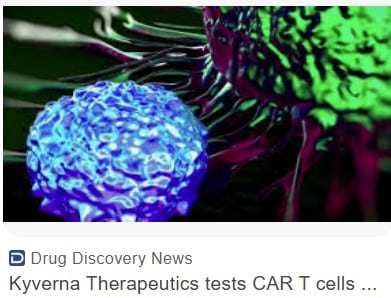KYV-101 tested in PPMS, SPMS patients in 2 Phase 1 studies
by Andrea Lobo, PhD | April 15, 2025
Kyverna Therapeutics’ CAR T-cell therapy candidate KYV-101 was deemed safe and well tolerated, and showed preliminary signs of efficacy, in people with progressive forms of multiple sclerosis (MS) in clinical testing.
That’s according to data from two investigator-initiated Phase 1 trials, which enrolled individuals with secondary progressive MS (SPMS) and primary progressive MS (PPMS) who had not experienced recent relapses.
Early findings from both trials were shared in two back-to-back oral presentations at this year’s American Academy of Neurology (AAN) Annual Meeting, held April 5-9, in San Diego and online.
In one of the trials, the “[participants] enrolled to date have shown excellent tolerance,” and the therapy demonstrated “robust” effects on some efficacy markers, the investigators wrote in that presentation abstract.
Data presented on first 4 patients given CAR T-cell therapy in trial
MS is caused by immune system attacks that damage healthy parts of the brain and spinal cord. Several immune cells are involved in those attacks, including B-cells, the immune cells that normally produce antibodies to fight off infections.
KYV-101 belongs to a class of treatments called CAR T-cell therapies, which involve collecting a patient’s immune T-cells and engineering them in the lab to carry a man-made receptor — called a chimeric antigen receptor, or CAR — on their surface that makes them more efficient at targeting a specific protein.
The modified T-cells in KYV-101 are particularly designed to target the CD19 protein at the surface of B-cells, allowing them to attack and destroy the disease-causing immune cells once infused back into the patient.
Before cells are infused, however, patients receive a round of chemotherapy to deplete white blood cells and create an environment that is favorable for CAR T-cell expansion and survival.
KYV-101 is being tested in an investigator-initiated open-label Phase 1 trial (NCT06138132) that’s taking place at the Stanford Multiple Sclerosis Center in California. In an open-label study, both participants and researchers know the exact treatment being given.
The trial enrolled 12 patients, ages 18 to 65, with progressive forms of MS.
Read More, HERE
To Keep Up-to-date with MS news and information, please sign-up here



